Dark energy, the mysterious force thought to be driving the ever-faster expansion of the universe, appears to be changing over time, according to new observations released Wednesday.
Category: cosmology – Page 62
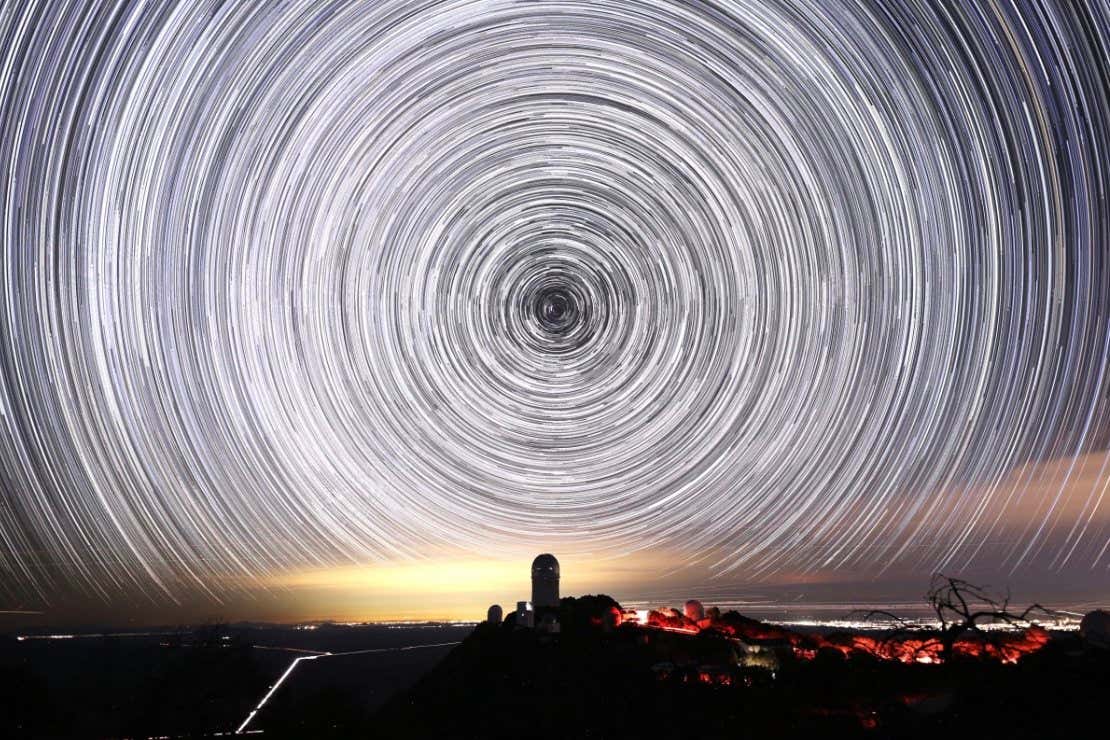
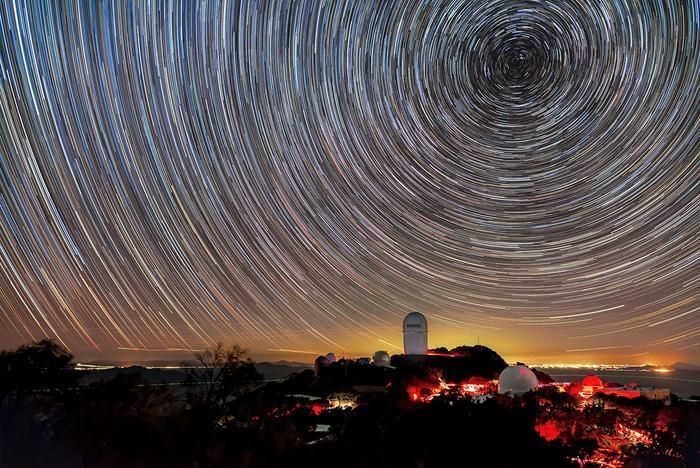
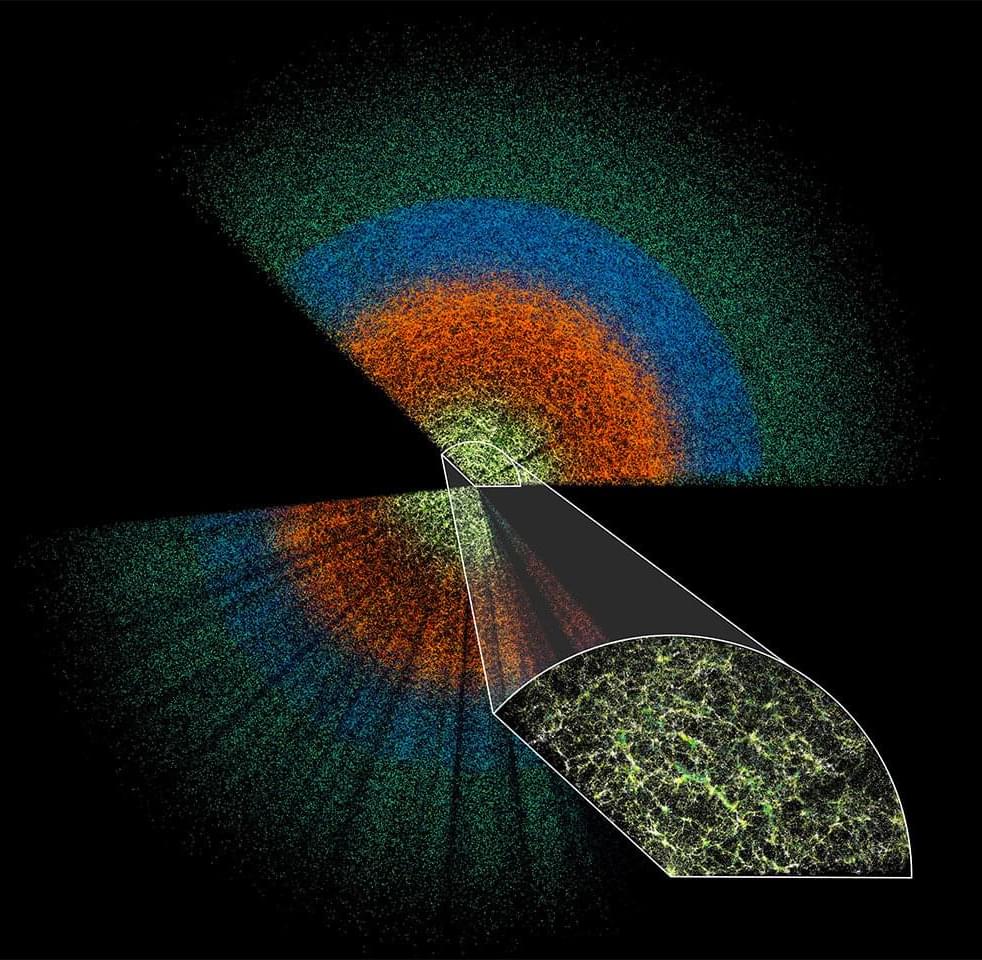
DESI releases largest 3D map of the universe to date
The Dark Energy Spectroscopic Instrument (DESI) is mapping millions of celestial objects to better understand dark energy—the mysterious driver of our universe’s accelerating expansion. Today, the DESI collaboration released a new collection of data for anyone in the world to investigate.
The dataset is the largest of its kind, with information on 18.7 million objects: roughly 4 million stars, 13.1 million galaxies, and 1.6 million quasars (extremely bright but distant objects powered by supermassive black holes at their cores).
While the experiment’s main mission is illuminating dark energy, DESI’s Data Release 1 (DR1) could yield discoveries in other areas of astrophysics, such as the evolution of galaxies and black holes, the nature of dark matter, and the structure of the Milky Way.
“Cosmological Stasis” Could Explain Dark Matter: Does that make sense?
Compactification of dimensions in string theory and inflationary expansion of space from Planck scale.
Check out these science courses on Brilliant! First 30 days are free and 20% off the annual premium subscription when you use our link ➜ https://brilliant.org/sabine.
Physicists have come up with a new idea for how our universe began, and it could also explain dark matter. They say that if our universe has small extra dimensions, then these can temporarily store energy, causing a “cosmological stasis” in which the universe expands but nothing else happens. Then the stasis ends and dark matter remains. Sounds wild. What are we to make of this?
🤓 Check out my new quiz app ➜ http://quizwithit.com/
💌 Support me on Donorbox ➜ https://donorbox.org/swtg.
📝 Transcripts and written news on Substack ➜ https://sciencewtg.substack.com/
👉 Transcript with links to references on Patreon ➜ / sabine.
📩 Free weekly science newsletter ➜ https://sabinehossenfelder.com/newsle… Audio only podcast ➜ https://open.spotify.com/show/0MkNfXl… 🔗 Join this channel to get access to perks ➜ / @sabinehossenfelder 🖼️ On instagram ➜
/ sciencewtg #science #sciencenews #physics.
👂 Audio only podcast ➜ https://open.spotify.com/show/0MkNfXl…
🔗 Join this channel to get access to perks ➜
/ @sabinehossenfelder.
🖼️ On instagram ➜ / sciencewtg.
#science #sciencenews #physics
Quantum Gravity! New Research Explains How Space-Time Could Be Entangled
Could gravitational waves—the ripples in space-time—also be quantum in nature? Scientists believe they might! A new study suggests gravitational waves could induce quantum entanglement, revolutionizing physics and reshaping our understanding of gravity. But detecting these effects requires cutting-edge technology. Will future observatories like LIGO-India unlock the quantum secrets of space-time? Dive into this fascinating discovery and explore the possibilities of a quantum universe! Watch now and join the discussion!
Paper link: https://www.sciencedirect.com/science… 00:00 Introduction 00:29 The Quantum Nature of Gravitational Waves – A Theoretical Breakthrough 02:21 The Research Behind the Discovery 04:13 Implications and the Future of Quantum Gravitational Wave Research 07:30 Outro 07:43 Enjoy MUSIC TITLE : Starlight Harmonies MUSIC LINK : https://pixabay.com/music/pulses-star… Visit our website for up-to-the-minute updates: www.nasaspacenews.com Follow us Facebook: / nasaspacenews Twitter:
/ spacenewsnasa Join this channel to get access to these perks:
/ @nasaspacenewsagency #NSN #NASA #Astronomy#QuantumPhysics #GravitationalWaves #SpaceTime #QuantumGravity #Einstein #Physics #Astrophysics #Science #BlackHoles #LIGO #QuantumEntanglement #Cosmology #DarkMatter #BigBang #QuantumMechanics #ScienceExplained #FutureOfPhysics #Space #QuantumWorld #Relativity #TimeTravel #HiggsBoson #StringTheory #AstroScience #QuantumTechnology #SpaceExploration #GeneralRelativity #UnifiedTheory #TheoreticalPhysics #QuantumReality #WaveParticleDuality.
Chapters:
00:00 Introduction.
00:29 The Quantum Nature of Gravitational Waves – A Theoretical Breakthrough.
02:21 The Research Behind the Discovery.
04:13 Implications and the Future of Quantum Gravitational Wave Research.
07:30 Outro.
07:43 Enjoy.
MUSIC TITLE : Starlight Harmonies.
MUSIC LINK : https://pixabay.com/music/pulses-star…
Visit our website for up-to-the-minute updates:
www.nasaspacenews.com.
Follow us.
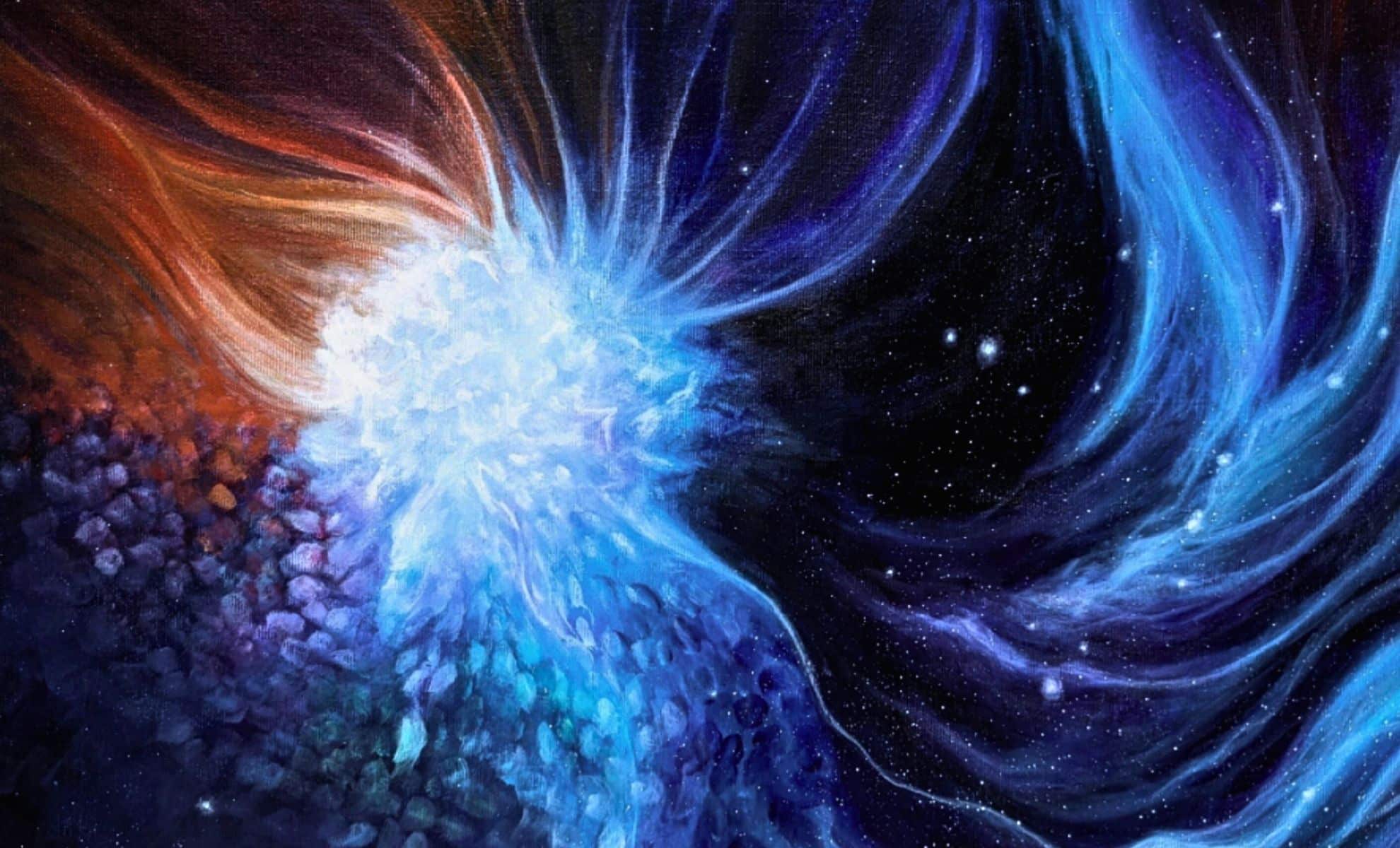
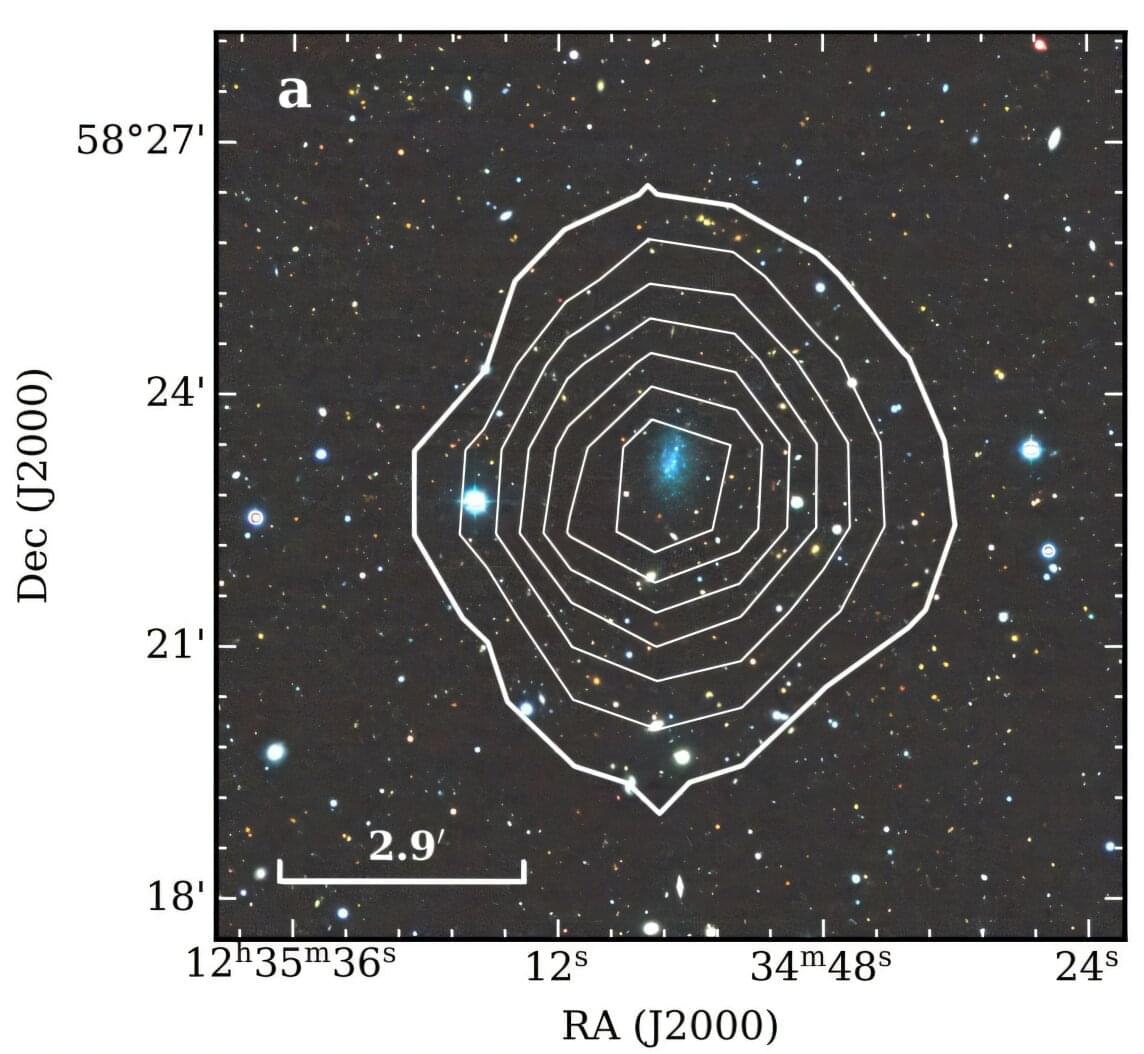
FAST detects new ultra-faint dwarf galaxy
Using the Five-hundred-meter Aperture Spherical radio Telescope (FAST), Chinese astronomers have detected a new ultra-faint dwarf galaxy, which turned out to be gas-rich. The finding was reported in a research paper published March 12 on the preprint server arXiv.
The so-called ultra-faint dwarf galaxies (UFDs) are the least luminous, most dark matter –dominated, and least chemically evolved galaxies known. Therefore, they are perceived by astronomers as the best candidate fossils from the universe at its early stages.
A team of astronomers led by Jin-Long Xu of the Chinese Academy of Sciences (CAS) is carrying out a FAST extragalactic H I (neutral atomic hydrogen) survey (FASHI). One of the objectives of this survey is to search for dark and weak galaxies. Now, they report the finding of a new UFD as part of this project.
Latest dark energy survey data suggest possible variations in dark energy over time
A new study using the Dark Energy Survey (DES) final datasets suggests potential inconsistencies in the standard cosmological model, known as ΛCDM. If confirmed, these findings could fundamentally alter our understanding of the universe.
DES was conducted using the 570-megapixel Department of Energy-fabricated Dark Energy Camera (DECam), mounted on the U.S. National Science Foundation Víctor M. Blanco 4-meter Telescope at Cerro Tololo Inter-American Observatory in Chile, a Program of NSF NOIRLab.
The ΛCDM (Lambda-CDM) model has been the foundation of modern cosmology for some time now, successfully describing large-scale structures in the universe. It proposes that 95% of the cosmos is composed of dark matter (25%) and dark energy (70%)—mysterious substances whose nature remains unknown. Only 5% of the universe consists of ordinary matter.
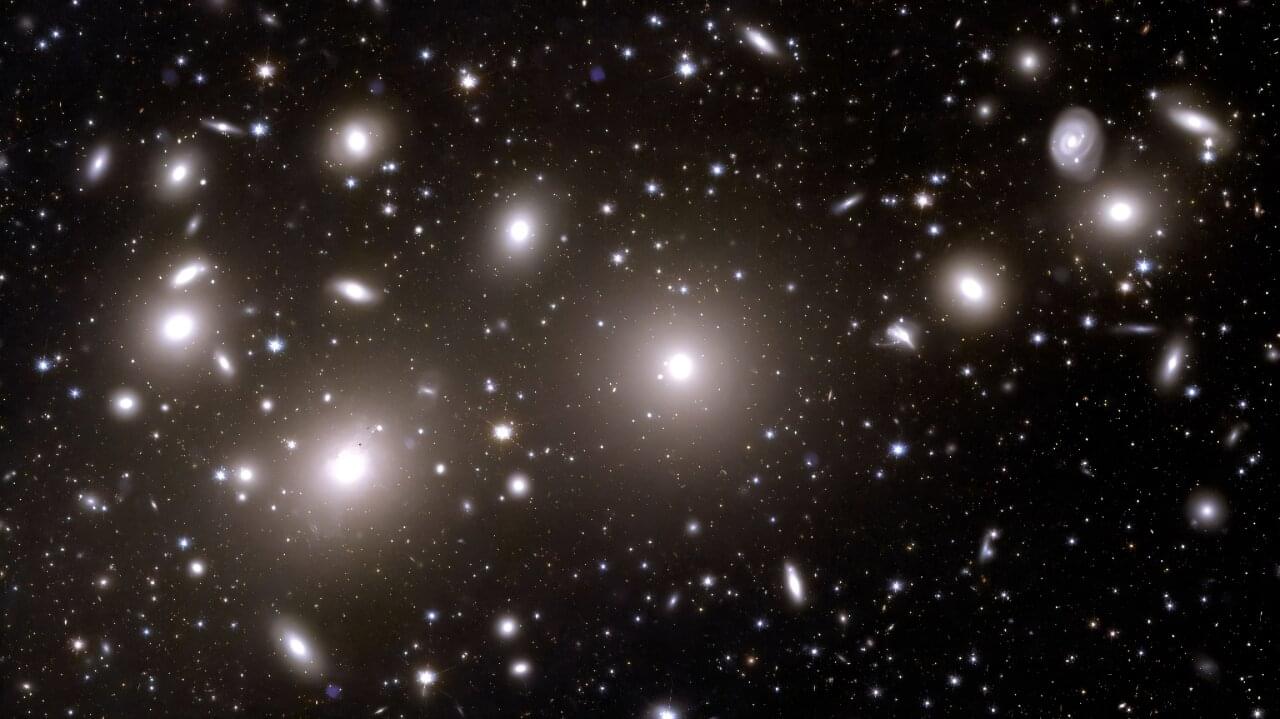
Dark energy seems to be changing, rattling our view of universe
Dark energy, the mysterious force thought to be driving the ever-faster expansion of the universe, appears to be changing over time, according to new observations released Wednesday.
If dark energy is in fact weakening, it would likely mean that science’s understanding of how the universe works will need to be rewritten.
The new findings come from the Dark Energy Spectroscopic Instrument (DESI), which sits on a telescope at the Kitt Peak National Observatory in the U.S. state of Arizona.